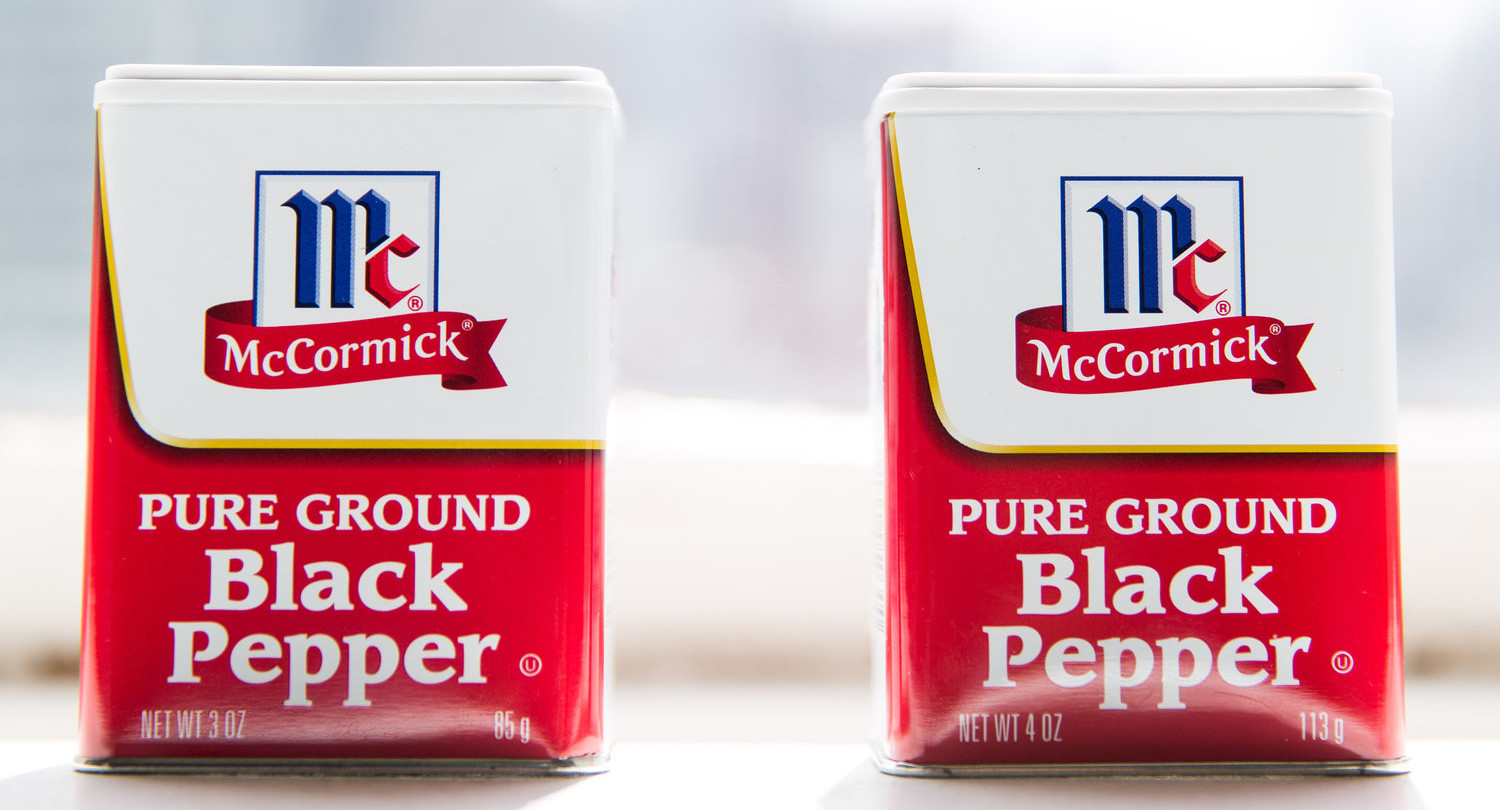Pure. Ground. Black. Pepper….It’s black gold.
Not really. But prices are up.
With global demand for pepper increasing, especially as China and the Far East consume more pepper (and meat to put it on), the wholesale price of pepper is up about 40% from the year ending in July of 2015 and up 310% over a 5 year period ending in July.
So it’s no surprise McCormick – the maker of 177 herbs and spices – has had to deal with the increase in the cost of black pepper that they buy, package, and sell to cooks worldwide.
However, they way they played the game got them in trouble. McCormick is in a class action law suit and there’s something for us all to learn.
What’s the game?
McCormick’s costs are up. Demand for black pepper has increased and bad weather has hurt the crop’s supply. Both of these forces are driving the cost up. McCormick, presumably, wants to keep or increase their profit margins. How does McCormick do this?
So the obvious solution is to pass the increased cost of pepper on to the end-consumer, you and me. That’s business as usual and allows McCormick to maintain their margins.
McCormick’s move
So McCormick did exactly that – raise prices. Except that instead of selling 4oz of pure ground black pepper for an increased price, they decided to sell 3oz of pure ground black pepper for the same price. They even used the same iconic metal tins for their new 3oz product.
Unfortunately, this move got them into a bit of trouble.
The outcome
There’s now a class action lawsuit against McCormick. Presumably, the people who have joined the suit feel deceived. It’s unclear to me whether McCormick was intentionally deceptive, unintentionally misleading, or simply too lazy/pragmatic to change their packaging (which could be expensive). The lawsuit might get to the bottom of this, but I won’t speculate here.
In the short term, the end-consumer has paid more for pepper. In the long term, a small number of consumers who can prove that they bought pepper during a certain period of time will be rewarded with a few bucks from a successful class action lawsuit – although success is not guaranteed.
In the short term, McCormick was, presumably, able to maintain their margins on pepper but in the long term, McCormick’s brand has been dealt a blow. They may be slapped with fines by the FDA and they may lose the class action lawsuit.
But ultimately, neither the end-consumer nor McCormick will really win here. Only the lawyers will.
Lessons learned for the consumer: pay attention
Always pay attention to what you’re buying. If you’re assuming that the government or a lawsuit will protect you, I think you’re mistaken. Be wary. And be careful not to trust any company too much. For-profit corporations have the primary function of creating profits for their shareholders. There are other kinds of corporations that have aims other than profits. Be wary of them all.
Lessons learned for McCormick: pay attention
McCormick is a huge company, worth about $12 billion in market cap. It seems to me that they have the resources and foresight to have avoided this situation. Their short term move could cost them long term – especially if the intention was to deceive consumers.
If this was a decision made in good faith (“We put the new weight right on the front of the tin — We weren’t trying to rip anyone off!), then they need to more carefully think through and review the consequences of their product decisions.
And when you do this, it’s critical to have a diversity of voices in the room – a group that can represent your customer base. Imagine the PR fiasco that could have been unleashed had this situation been perceived as targeting – intentionally or not – a racial, ethnic, socioeconomic, gender…etc, group or minority.
For better or worse, large brands have a lot on the line these days as control of the media slips from the hands of the few into the hands of the many.
Listen to Planet Money’s entertaining podcast on class action lawsuits in general, and this story specifically here.
Image source: Cameron Robert/NPR

